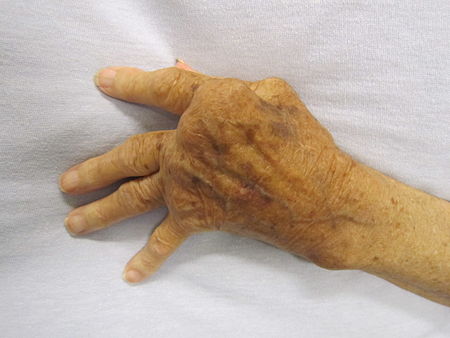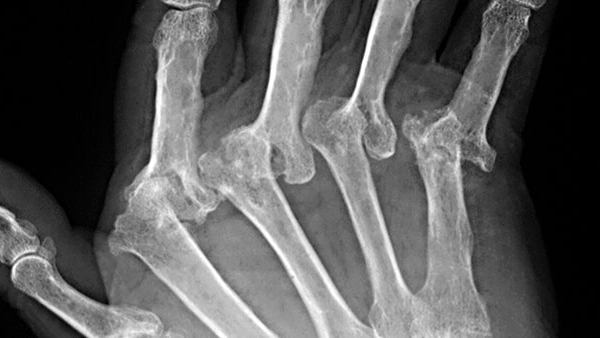nalco group
bone, muscle & joint pain physio
BOOK NOW / WHATSAPP ABOUT YOUR PAIN OR INJURY
- ORCHARD 400 Orchard Road #12-12 Singapore 238875
- TAMPINES 9 Tampines Grande #01-20 Singapore 528735
- SERANGOON 265 Serangoon Central Drive #04-269 Singapore 550265
Home > Blog > Physiotherapy & Hand Therapy > Conditions > Rheumatoid Arthritis
Rheumatoid Arthritis

Rheumatoid arthritis (RA) refers to a painful auto-immune degenerative arthritic medical condition that is a chronic inflammatory disease. It affects approximately 1% of the United States population.
RA often results in pain and inflammation in joints on both sides of the body, and can render patients with disability due to its effect on the immune system and to the joints and body parts.
Our senior hand therapists and senior physiotherapists can help manage the symptoms of RA, enhancing an individual's quality of life.
Other Arthritis Resources:
What is Rheumatoid Arthritis?
RA is classified as an autoimmune disease—a condition where the patient's own body’s immune system attacks its own tissues. Although the exact cause of RA is not known, multiple theories have been proposed to identify who is most likely to develop it.
The cause may be related to a combination of genetics and environmental or hormonal factors.
Studies are finding that women are more likely to develop the disease; women are diagnosed with RA 3 times more than men. Although RA may begin at any age, most research suggests it often tends to begins in midlife.
How Does rheumatoid arthritis Feel like?
RA symptoms can flare up and then dissipate or quieten down (go into remission). Research shows that early diagnosis and treatment is important for easing symptoms and flare-ups.
People with RA may experience:
- Stiff joints that feel worse in the morning
- Painful and swollen joints on both sides of the body
- Bouts of fatigue and general discomfort
- Fever
- Loss of joint function
- Redness, warmth, and tenderness in the joint areas
How Is rheumatoid arthritis Diagnosed?

RA is generally diagnosed by a rheumatologist.
Diagnosis is based upon factors, such as
- inflammation of the tissues that line the joints
- the
number of joints involved as well as
- blood-test results (checking for rheumatoid factors)
Our senior physiotherapist s may be the first practitioner to recognize the onset of RA; if that's the case, then we will refer an individual with suspected symptoms to an appropriate clinician for further tests.
how our senior physiotherapists and senior hand therapists can help

Our senior physiotherapists and senior hand therapists play a vital role in improving and maintaining function that may be limited by RA. We will work with you to develop a treatment plan to help address your specific needs and goals.
Because the signs and symptoms of RA can vary, the approach to care will also vary. We may provide the following recommendations and care:
Aerobic Activities
Studies have shown that group-based exercise and educational programs for people with RA have beneficial effects on individual strength and function.
Goal-Oriented Exercise
Studies also show that achievement of personal physical activity goals helps reduce pain and increase the general quality of life in people diagnosed with RA.
Modalities
Your physical therapist may use modalities, such as
- cold therapy
- heat therapy
- stretching exercises
- deep tissue release
- electrical stimulation
- etc
to help manage your RA symptoms.
Can this Injury or Condition be Prevented?
Unfortunately, the actual mechanisms that cause rheumatoid arthritis are not completely understood yet at this current point in time.
There currently is no sure way to predict or prevent the onset of RA. However, that being said, the early detection of the signs and symptoms will help you and your medical providers begin early management of RA, which may enhance your long-term well-being.
Upon diagnosis, we will work with you to develop strategies to better understand and manage your symptoms.
As with many conditions, education is key.

Understanding the underlying mechanisms of RA, so you can recognize early signs and symptoms (eg, morning stiffness, painful and swollen joints), may help you better manage the condition.
Above all, it is important to keep moving. Maintaining or increasing your activity levels will help improve your function and maintain a better quality of life.
